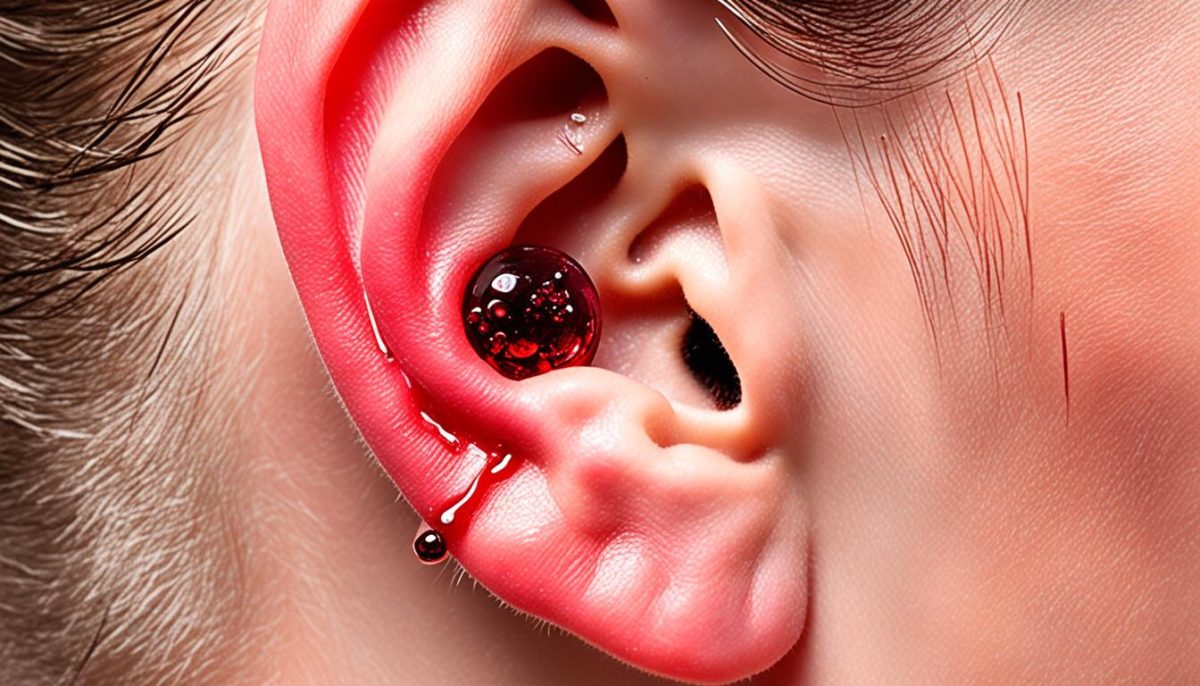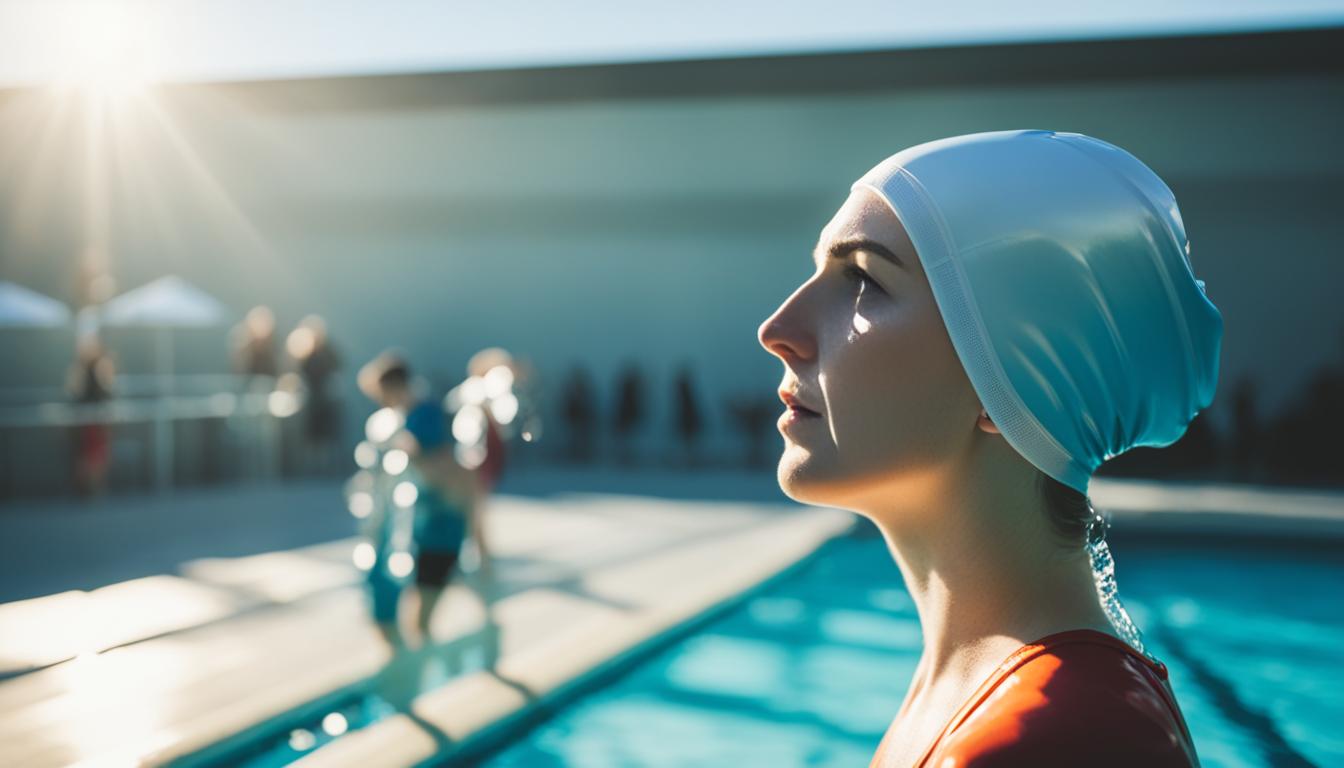Are you eager to dive back into the water after getting your ears pierced? It’s important to know how long you should wait before enjoying a refreshing swim. Taking the necessary precautions can prevent potential risks and ensure proper healing. In this article, we’ll discuss the ideal waiting period, factors to consider, and the healing process of an ear piercing.
Before diving into the timeframe for swimming after an ear piercing, let’s first explore the healing process. Understanding how your body recovers will help you make informed decisions regarding water activities.
Stay tuned as we dive deeper into the healing stages, factors that influence the healing time, and the recommended duration you should wait before taking a dip. Your well-being is our utmost priority!
Understanding the Healing Process of an Ear Piercing
Before delving into the timeframe for swimming after an ear piercing, it’s important to have a clear understanding of how the healing process works. Proper healing is crucial to prevent infections and complications.
An ear piercing goes through several stages of healing, each with its own characteristics and timeframe.
- Initial wound: After the ear is pierced, it becomes an open wound. This stage commonly lasts for a few days or up to a week. During this time, the body begins to produce collagen, a protein that helps in the healing process.
- Crust formation: As the wound starts to heal, a protective crust may develop around the pierced area. This crust is a natural part of the healing process and plays a vital role in preventing the entry of bacteria. It is essential not to remove or manipulate the crust, as it helps maintain a sterile environment for healing.
- Tissue regeneration: During this stage, new tissue forms and the wound closes from the inside out. It can take several weeks or even months for the tissue to fully regenerate, depending on the individual’s healing process and the type of piercing.
Understanding the healing process of an ear piercing allows you to make informed decisions about when it is safe to engage in activities like swimming. It’s crucial to wait until the tissue has fully regenerated and there are no signs of infection or discomfort before exposing your piercing to water.

Visually appealing image showcasing the healing process of an ear piercing.
Above is an image that illustrates the healing process of an ear piercing. It highlights the various stages from the initial wound to tissue regeneration. This visual representation can provide you with a clearer understanding of the healing process.
Quote:
“Proper healing is essential for the longevity and aesthetics of your ear piercing. Understanding the stages of healing can help you determine the right time to engage in water activities like swimming.”
With this understanding of the healing process, you can proceed to the next section to explore the factors to consider before swimming after an ear piercing.
Factors to Consider Before Swimming After Ear Piercing
When it comes to swimming after getting an ear piercing, several factors need to be taken into account. These factors can greatly impact the healing time of your piercing and increase the risk of complications. By carefully considering these factors, you can make an informed decision about when it is safe for you to take a dip in the water.
First and foremost, the type of piercing you have is an important factor to consider. Different types of piercings, such as lobe piercings or cartilage piercings, may have varying healing times. Cartilage piercings generally take longer to heal compared to lobe piercings due to the nature of the tissue. It’s essential to be aware of the specific healing time for your type of piercing to ensure you don’t disrupt the healing process by swimming too soon.
Another crucial factor to consider is your overall health. If you have a weakened immune system or a history of infections, you may be more susceptible to complications during the healing process. It’s important to consult with your healthcare provider before swimming after an ear piercing, especially if you have any underlying health conditions.
The care routine you follow during the healing period is also significant. Proper aftercare practices, such as cleaning the piercing with saline solution and avoiding touching or twisting the jewelry, can promote faster healing and reduce the risk of infection. If you neglect proper care, you may prolong the healing time and increase the likelihood of complications when swimming.
Ultimately, the decision of when to swim after an ear piercing should be based on a thoughtful evaluation of these factors. It’s crucial to prioritize your health and the well-being of your piercing by giving it adequate time to heal. Rushing into swimming too soon can jeopardize the healing process and increase the risk of infection.
By being mindful of the type of piercing, your overall health, and adhering to a proper care routine, you can determine the optimal time to safely enjoy swimming after an ear piercing. The next section will provide you with the recommended duration to wait before taking the plunge into the water.
Recommended Duration to Wait Before Swimming After Ear Piercing
After getting your ear pierced, it’s crucial to give your body enough time to heal before diving back into the pool. The recommended duration to wait before swimming varies depending on the type of piercing you have.
For lobe piercings, which are generally less complex and heal faster, it’s advisable to wait at least four to six weeks before swimming. This allows sufficient time for the initial wound to heal and reduces the risk of waterborne infections.
On the other hand, cartilage piercings require extra caution and a longer healing period. It is recommended to wait eight to twelve weeks before engaging in swimming or any water activities. Cartilage piercings are more prone to complications and take longer to fully heal, so patience is key in this case.
By following these recommendations, you can ensure that your ear piercing heals properly and minimize the risk of infections or complications. It’s important to remember that every individual heals differently, so it’s best to consult with your piercing professional or healthcare provider for personalized advice based on your specific situation.

